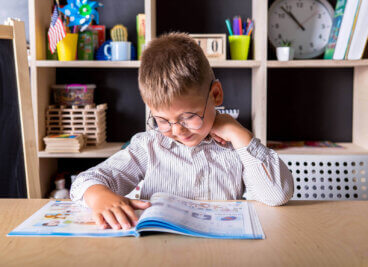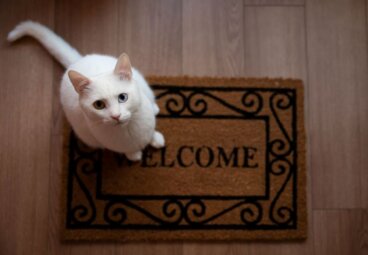The Weight of Chaos: The Detrimental Impact of a Cluttered Home

In the hustle and bustle of daily life, our homes often become a reflection of the chaos we navigate outside their walls. A cluttered home, while seemingly innocuous, carries profound implications for the well-being of the family that resides within. Beyond the visible disarray, the negative effects of clutter extend into various facets of life, influencing mental, emotional, and even physical health.
In this exploration, we’ll delve into the intricate ways in which a cluttered home can cast a shadow over the harmony we seek, shedding light on the importance of cultivating a space that nurtures rather than hinders family well-being.
The Negative Effects of a Cluttered Home on Your Family’s Well-Being
The Visible Chaos: A Stressful Living Space
A cluttered home is more than a mere accumulation of belongings; it’s an environment that speaks volumes about the state of mind within. Visual disarray can be a constant source of stress, with every untidy corner acting as a visual reminder of unfinished tasks and unmet responsibilities.
Studies have shown a direct correlation between the level of clutter in one’s surroundings and the stress hormone cortisol. As clutter accumulates, so does the sense of being overwhelmed, creating a stressful home that counteracts the very essence of what a home should be—a sanctuary of tranquility.

Beyond the immediate stress induced by visual chaos, a cluttered home often leads to decision fatigue. The constant barrage of stimuli from an environment filled with items competing for attention can exhaust cognitive resources. Simple tasks like choosing an outfit or preparing a meal become overwhelming when surrounded by an excess of possessions. Decision fatigue not only impedes daily efficiency but also contributes to a heightened sense of anxiety and frustration, further eroding the sense of well-being within the family.
The Mental Toll: A Cluttered Mind
The impact of a cluttered home extends beyond the physical space into the mental realm, influencing cognitive function and emotional well-being.
Studies conducted by psychologists reveal a connection between a cluttered environment and a decreased ability to focus and process information. The brain, overwhelmed by the constant stimuli of disorder, struggles to filter and prioritize tasks, resulting in reduced productivity and heightened feelings of anxiety.
Moreover, a cluttered home can contribute to a sense of guilt and inadequacy. The pressure to maintain an orderly household, coupled with the inability to do so, can lead to feelings of failure and self-blame. This emotional toll, often unspoken but deeply felt, creates an undercurrent of dissatisfaction and unease within the family dynamic.
As clutter accumulates, so does the weight on the mental well-being of each family member, impacting their overall quality of life.
Physical Implications: The Health Hazards of Clutter
In addition to its mental and emotional toll, a cluttered home can have tangible effects on physical health. The accumulation of items creates hiding spots for dust, allergens, and even pests. Poor indoor air quality resulting from clutter can exacerbate respiratory issues, allergies, and other health concerns, particularly in children.
The difficulty in maintaining a clean and hygienic living space in the midst of clutter amplifies the risk of health hazards, turning the home—a supposed haven—into a breeding ground for potential ailments.
Moreover, the physical barriers created by clutter can lead to accidents and injuries. Tripping over misplaced items or navigating through cluttered spaces increases the risk of falls, particularly for young children and the elderly. The immediate physical danger, combined with the constant low-grade stress of navigating a cluttered environment, further compromises the well-being of the family.
Strained Relationships: The Impact on Family Dynamics
A cluttered home isn’t merely a collection of disorganized possessions; it can strain the very fabric of family relationships. The constant stress and disarray create an environment where open communication and quality time are compromised. A cluttered home often leads to increased tension, irritability, and arguments, as family members grapple with the challenges of living in a chaotic space. The strain on relationships extends to a reduced sense of privacy and personal space, further complicating the dynamics within the family unit.
Declutter Your Home and Increase Your Family’s Well-Being

In conclusion, the negative effects of a cluttered home on family well-being are multifaceted, influencing mental, emotional, and physical health, as well as straining relationships. Recognizing the impact of clutter goes beyond aesthetics; it’s about understanding the toll it takes on the overall quality of life within the family. Creating a harmonious home environment involves not just tidying up but also fostering a space that nurtures well-being, encouraging a sense of calm and promoting positive family dynamics.
In the hustle and bustle of daily life, our homes often become a reflection of the chaos we navigate outside their walls. A cluttered home, while seemingly innocuous, carries profound implications for the well-being of the family that resides within. Beyond the visible disarray, the negative effects of clutter extend into various facets of life, influencing mental, emotional, and even physical health.
In this exploration, we’ll delve into the intricate ways in which a cluttered home can cast a shadow over the harmony we seek, shedding light on the importance of cultivating a space that nurtures rather than hinders family well-being.
The Negative Effects of a Cluttered Home on Your Family’s Well-Being
The Visible Chaos: A Stressful Living Space
A cluttered home is more than a mere accumulation of belongings; it’s an environment that speaks volumes about the state of mind within. Visual disarray can be a constant source of stress, with every untidy corner acting as a visual reminder of unfinished tasks and unmet responsibilities.
Studies have shown a direct correlation between the level of clutter in one’s surroundings and the stress hormone cortisol. As clutter accumulates, so does the sense of being overwhelmed, creating a stressful home that counteracts the very essence of what a home should be—a sanctuary of tranquility.

Beyond the immediate stress induced by visual chaos, a cluttered home often leads to decision fatigue. The constant barrage of stimuli from an environment filled with items competing for attention can exhaust cognitive resources. Simple tasks like choosing an outfit or preparing a meal become overwhelming when surrounded by an excess of possessions. Decision fatigue not only impedes daily efficiency but also contributes to a heightened sense of anxiety and frustration, further eroding the sense of well-being within the family.
The Mental Toll: A Cluttered Mind
The impact of a cluttered home extends beyond the physical space into the mental realm, influencing cognitive function and emotional well-being.
Studies conducted by psychologists reveal a connection between a cluttered environment and a decreased ability to focus and process information. The brain, overwhelmed by the constant stimuli of disorder, struggles to filter and prioritize tasks, resulting in reduced productivity and heightened feelings of anxiety.
Moreover, a cluttered home can contribute to a sense of guilt and inadequacy. The pressure to maintain an orderly household, coupled with the inability to do so, can lead to feelings of failure and self-blame. This emotional toll, often unspoken but deeply felt, creates an undercurrent of dissatisfaction and unease within the family dynamic.
As clutter accumulates, so does the weight on the mental well-being of each family member, impacting their overall quality of life.
Physical Implications: The Health Hazards of Clutter
In addition to its mental and emotional toll, a cluttered home can have tangible effects on physical health. The accumulation of items creates hiding spots for dust, allergens, and even pests. Poor indoor air quality resulting from clutter can exacerbate respiratory issues, allergies, and other health concerns, particularly in children.
The difficulty in maintaining a clean and hygienic living space in the midst of clutter amplifies the risk of health hazards, turning the home—a supposed haven—into a breeding ground for potential ailments.
Moreover, the physical barriers created by clutter can lead to accidents and injuries. Tripping over misplaced items or navigating through cluttered spaces increases the risk of falls, particularly for young children and the elderly. The immediate physical danger, combined with the constant low-grade stress of navigating a cluttered environment, further compromises the well-being of the family.
Strained Relationships: The Impact on Family Dynamics
A cluttered home isn’t merely a collection of disorganized possessions; it can strain the very fabric of family relationships. The constant stress and disarray create an environment where open communication and quality time are compromised. A cluttered home often leads to increased tension, irritability, and arguments, as family members grapple with the challenges of living in a chaotic space. The strain on relationships extends to a reduced sense of privacy and personal space, further complicating the dynamics within the family unit.
Declutter Your Home and Increase Your Family’s Well-Being

In conclusion, the negative effects of a cluttered home on family well-being are multifaceted, influencing mental, emotional, and physical health, as well as straining relationships. Recognizing the impact of clutter goes beyond aesthetics; it’s about understanding the toll it takes on the overall quality of life within the family. Creating a harmonious home environment involves not just tidying up but also fostering a space that nurtures well-being, encouraging a sense of calm and promoting positive family dynamics.







